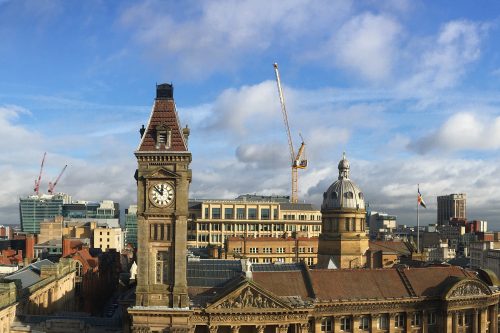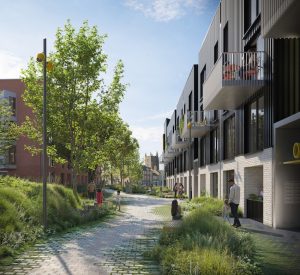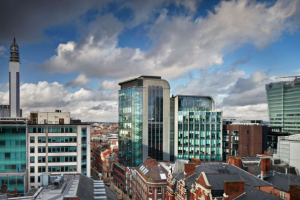Birmingham’s pre-COVID economic success offers strong foundations for recovery

Continued infrastructure investment, a resilient residential market and a pick-up in both office and manufacturing activity are likely to underpin Birmingham’s post-COVID recovery, a report has said.
One of a series of reports across UK core cities, Avison Young’s 2021 Forecast Birmingham predicts the year ahead, looking at factors expected to drive post-COVID economic recovery.
The report earmarks the transformative effect of infrastructure investment as central to boosting the economy, unlocking development and driving change – with completion of the Metro second phase and long-term HS2 plans as key.
Birmingham’s position as top migratory destination from London in 2019, along with its strong build to rent (BTR) market, are also likely to continue to ignite investor interest.
Before the pandemic, in three of the last five years, the city achieved higher GDP growth than the UK and European city averages, with the largest population growth in the UK outside London.
Birmingham boasted a busy office market, significant city-wide regeneration, and its professional and financial services sector accounted for a quarter of regional output. Yet, owing to its high concentration of sectors heavily impacted by the pandemic such as manufacturing and tourism, the city was among the worst hit when COVID-19 struck.
The Avison Young 2021 Forecast highlights several areas as key to its post-COVID bounce back:
● Sustained major infrastructure investment – making Birmingham an attractive alternative to London and spurring relocations for major corporates such as HSBC and BT in recent years. As highlighted, the Metro second phase completion and HS2 are likely to lead to increased relocations in 2021, as well as further government interest, following the city’s major office deal with the Department for Housing, Communities and Local Government for 48,787 sq ft of commercial space in June 2020.
● Office market revival – with a focus on smaller, but better-quality space. While the city’s pre-COVID Q1 office take-up figures were robust, and despite a a slight uptick in Q3, the rest of 2020 saw office requirements take a nosedive. In spite of this, predicted demand bodes well for city centre speculative developments under construction – among those the 228,000 sq ft 103 Colmore Row fully available and ready in Summer, the 280,000 sq ft 1 Centenary Way, Paradise, due to complete towards the end of 2022, and the 70,000 sq ft already under offer and with architects appointed at 3 Chamberlain Square.
● Resilient residential market – remaining so throughout 2020 with a substantial post-lockdown boom and bolstered by Birmingham as a build-to-rent (BTR) hotspot. The city offers relatively affordable housing, particularly compared to London and the South East, and saw a 26% average house price rise in the five years to September 2020. This will continue to be a pull-factor for those looking to buy. In addition, demand for rented housing is also strong, with more than 5,000 BTR homes either completed or under construction/in planning – with only London amassing more. Investor appetite continued throughout the pandemic, with the £260m Moda Living scheme deal completed at Great Charles Street. As home to one of the youngest populations in Europe, and with 56% living in private rental across the city centre, plus asking rents up by 28% since 2009, Avison Young expects this to continue.
● De-risked manufacturing, with the accelerated on-shoring trend and ‘building back better’ initiative focusing on environmental, energy storage technologies and green manufacturing. Avison Young predicts these will be a long-term, significant contributor to industrial property demand and the reversal of the short-term negative factors wrought by COVID-19.
Carl Potter, managing director for Avison Young in Birmingham, said: “Birmingham was making headlines for its economic growth before the COVID-19 pandemic, with real estate playing a vital role, but has been hit hard and we must not underestimate the challenges ahead.
“While sharing many of the same challenges of its core city counterparts, Birmingham must look to its strengths and seize the opportunities emerging, particularly in areas where it has potential or a stronger proposition.
“Continued infrastructure investment, which will provide the confidence to businesses and investors alike, paired with a fast and agile response to office market demand and the continued growth of residential, can help Birmingham gain momentum and pave its way to pre-COVID activity levels.
“All of this will need to be driven by close partnership working between the public and private sector, which we know is a major strength, helping to assure people and communities are central to our recovery.
“Alongside the ongoing roll out of a vaccine and following Brexit, uncertainty is reducing and there are lights at the end of the tunnel for people, businesses and the city as a whole.”









